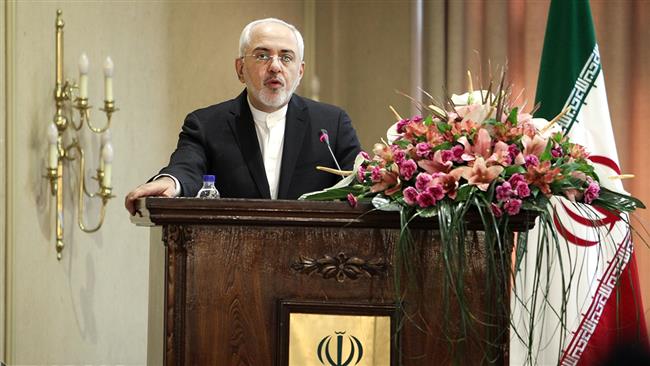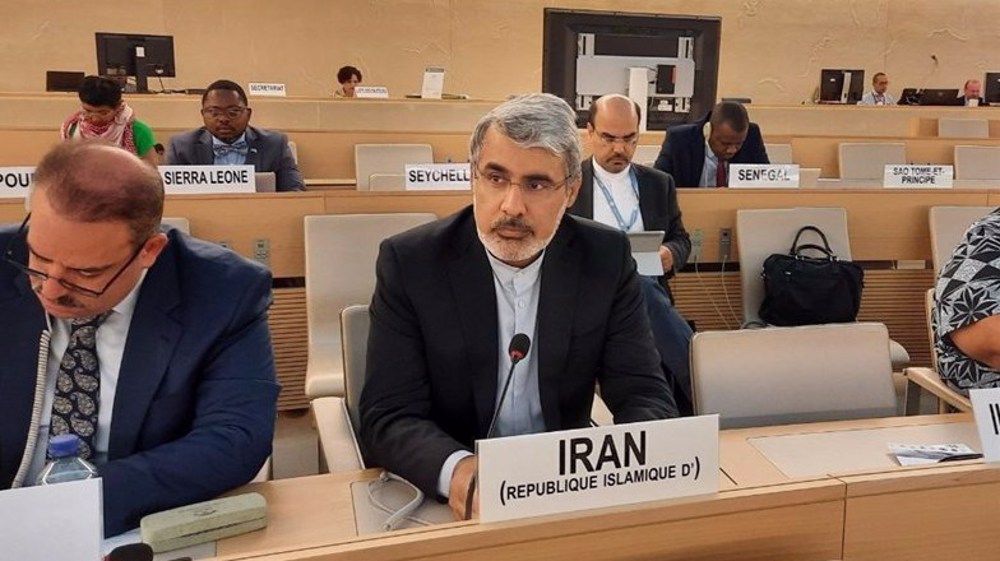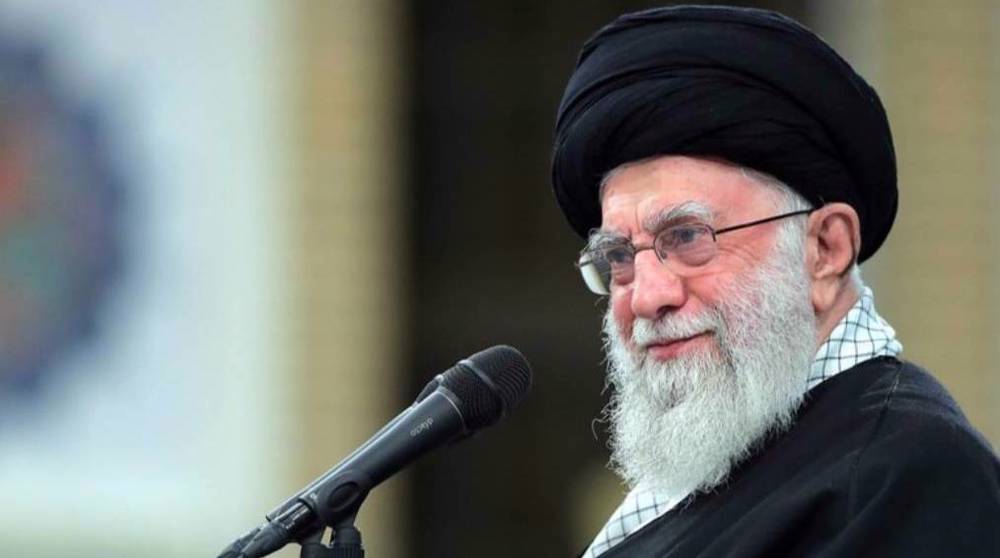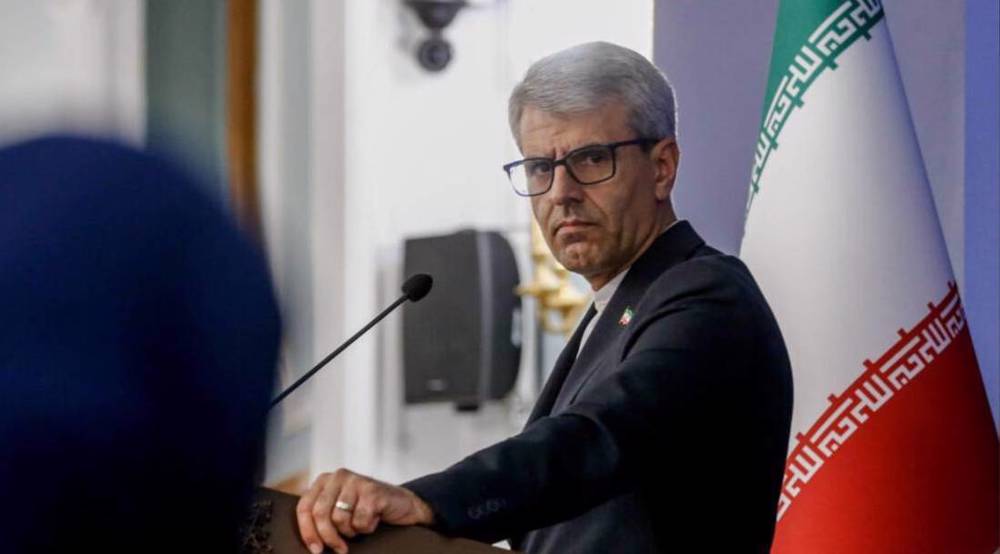Iranophobia at heart of accusations by Saudi Arabia, West: FM
Foreign Minister Mohammad Javad Zarif has rejected accusations that Iran was in a quest to resurrect the Persian Empire, saying the accusations are in line with the Iranophobia project.
“The narrative and formatting of some media and writings that Iran is seeking to revive its ancient empire and expand its territorial sphere of influence is all the false and groundless presumptions that have been concocted to be knit into the Iranophobia project,” he said Monday.
Zarif made the remarks during his address to a conference held in Tehran on the history of Iran’s foreign relations, which was attended by a number of foreign diplomats and ambassadors as well as researchers.
Last month, French Foreign Minister Jean-Yves Le Drian echoed during a joint news conference with his Saudi counterpart Adel al-Jubeir Riyadh’s accusations that Iran had “hegemonic” intentions in the region.
Zarif told the “international and regional rabble-rousers to read a bit about the history of the Iranian people’s resistance.”
“The Islamic Republic of Iran emphasizes the territorial integrity of the countries of the region and their independence. We see our interests in a powerful, advanced and stable region,” he said.

Zarif outlined Iran’s foreign policies, saying the country should always maintain “distrust in arrogant powers and friendship and engagement with neighbors.”
Western powers and their allies in the region are worried about what they call an Iranian “arc of influence” stretching from Lebanon and Syria in the Levant, to Iraq and Bahrain on the Persian Gulf, to Yemen on the Red Sea.
Those worries have especially increased in the wake of Iran’s successful military advisory assistance to Iraq and Syria to neuter a foreign-backed insurgency in the two Arab countries.
Advisory assistance to Syria
On Monday, Secretary of the Supreme National Security Council Ali Shamkhani said, “Upon the request of the legitimate Syrian government, we will continue to have a presence and provide advisory services until all terrorist groups are eradicated in the country.”
“The claims of the Zionist regime and other countries have no bearing on the calculations and decisions of the Islamic Republic of Iran in pursuit of national interests and regional security,” he said.
Shamkhani made the remarks during a visit to Iran’s western Kordestan Province on the Iraqi border, where he touched on efforts by the Western countries and the Zionist regime to create insecurity and partition the regional countries.”
“The plot to separate the Kurdistan region from Iraq, which was nipped in the bud thanks to the vigilance and cooperation of the countries of the region, reflects the power and will of the people and governments of the region to safeguard security and stability as the most urgent need for development, progress, and welfare,” he said.

Last month, Iraq’s Supreme Federal Court ruled the Sept. 25 Kurdish secession referendum as unconstitutional and the results void.
Some Iraqi Kurds voted to break away from Iraq in the referendum, defying the central government in Baghdad and the regional countries.
The aborted move was strongly opposed by much of the international community, with Israel supporting it alone.
CIA turns to Kurdish militants to destabilize Iran after war failures: Report
Iran won’t remain silent in face of aggression: Envoy
Iran sets three-day ceremony to bid farewell to late Ayatollah Khamenei
Tehran warns EU against ‘Nazi mindsets,’ slams German backing of Israeli-US aggression
Iran agreed to nuclear concessions in Geneva talks – and then US-Israel bombed
Witkoff undermined Iran talks by peddling lies to build case for military aggression: Report
Scrutiny mounts over Trump’s Iran war amid contradictory claims, soaring costs: Reports
No imminent threat, just Israeli agenda: US senators push back on war on Iran










 This makes it easy to access the Press TV website
This makes it easy to access the Press TV website